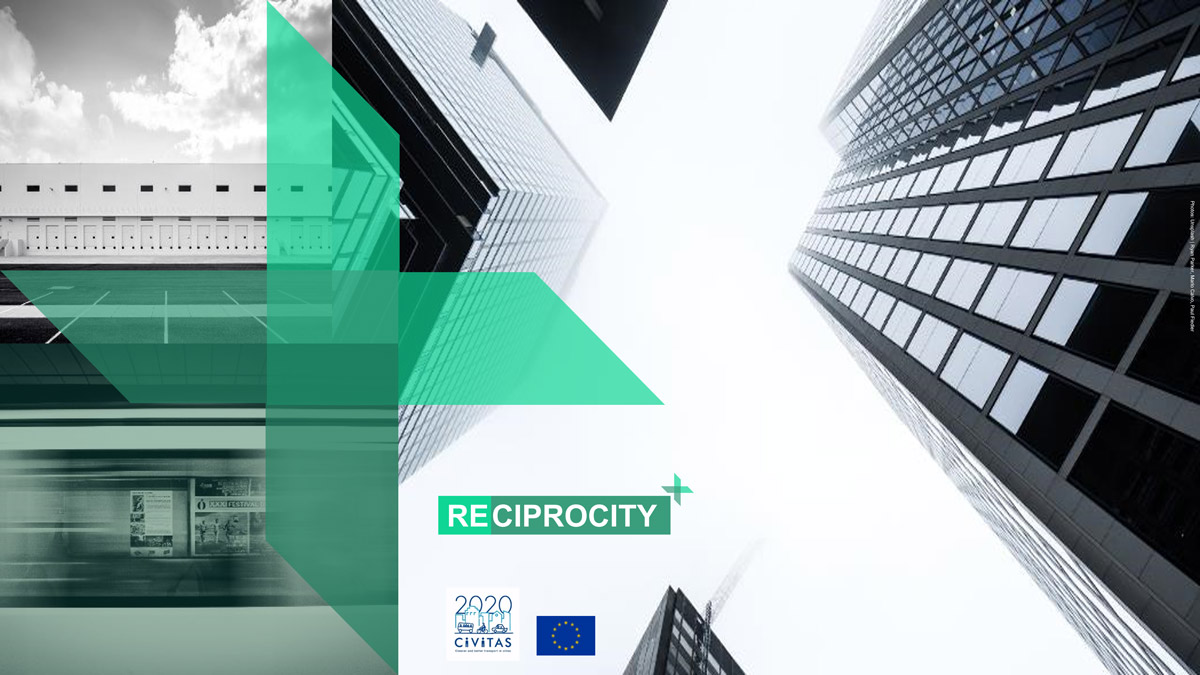About the RECIPROCITY project
Mobility is changing. Urbanisation, climate change and digitalisation challenge how people and goods move from A to B. To cope with these challenges and meet global climate targets, urban and inter-urban areas must become well-connected, multimodal and multi-usage nodes for smart and clean mobility.
While early pilot projects have shown success, there is a gap in transferring these innovations to different contexts, cities or regions. The RECIPROCITY project‘s innovative four-stage replication approach – IDENTIFY, LEARN, ACCELERATE and SHARE – has been designed to showcase and disseminate best practices for sustainable urban development and mobility.
Concluded in September 2023, RECIPROCITY has exceeded its goal of accelerating the replication of existing innovative mobility solutions for rural, peri-urban, and inner-city areas with the active engagement of over 350 stakeholders, including cities, regional representatives, mobility providers, academia, and clusters in its activities.
DOWEL’s role and project key results
At the outset of the project, DOWEL supported the RECIPROCITY consortium in understanding the challenges faced by project stakeholders. Through interviews, valuable qualitative data were gathered, providing insight into smart mobility across European cities. This qualitative picture was complemented by quantitative data from an online survey, which effectively engaged stakeholders including private companies.
- The methodology developed and the mobility needs and challenges collected from the stakeholders at that time are available in the D1.2 Interview guidelines and report.
To successfully change mobility behaviour, innovative mobility solutions have to be largely replicated. As mobility projects are complex, a successful business model may not be suitable for different cities’ economic, environmental, technological, and social contexts. Recognising the variations in terms of needs and priorities, DOWEL organised several business model workshops to identify business model patterns for urban mobility and propose a business model portfolio that encourage cross-sector collaboration and create an integrated mobility system.
- D3.3 Business model report provides an overview of innovative urban mobility business models that could be tailored to cities in the RECIPROCITY replication ecosystem.
The work conducted has allowed to support various activities in the project related to the identification of the most suitable financial scheme for a rapid implementation of smart mobility solutions.
Key project results are available throughout the RECIPROCITY Knowledge Center, including training materials, a collection of mobility best practices, a replication manual and policy papers, a funding and legal helpdesk and several other publications.
RECIPROCITY’s partners efforts culminate with the creation of the ARRIVAL platform, the European Portal for Innovative Transports and Clean Mobility Solutions. Developed with the ENTRANCE project, this platform serves as both a knowledge hub and a dynamic matchmaking tool to connect the right partners for research and innovation or the implementation of existing solutions.


